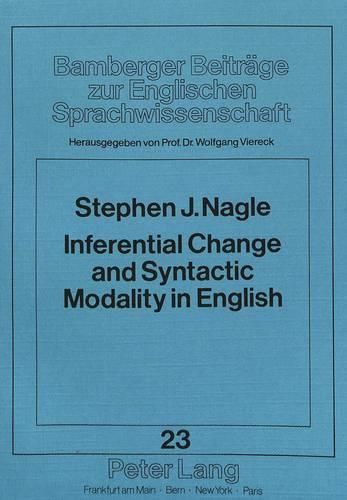Readings Newsletter
Become a Readings Member to make your shopping experience even easier.
Sign in or sign up for free!
You’re not far away from qualifying for FREE standard shipping within Australia
You’ve qualified for FREE standard shipping within Australia
The cart is loading…






Because of the unique syntactic behavior of the English modal auxiliaries (e.g., lack of complementation), many generative grammarians have argued for the position that they are categorially distinct from verbs. This study addresses the resulting historical question of how English modals such as may and must split away from the verb system. Dr. Nagle proposes two discrete changes in the underlying grammar whose gradual surface ramifications appear to be syntactic drift. He further argues that whether a change’s surface output proceeds gradually or rapidly depends on the strength and form of language learners’ inferential decisions. Two such cognitive decisions underlie the gradual-then-rapid surface drift of the English modals.
$9.00 standard shipping within Australia
FREE standard shipping within Australia for orders over $100.00
Express & International shipping calculated at checkout
Because of the unique syntactic behavior of the English modal auxiliaries (e.g., lack of complementation), many generative grammarians have argued for the position that they are categorially distinct from verbs. This study addresses the resulting historical question of how English modals such as may and must split away from the verb system. Dr. Nagle proposes two discrete changes in the underlying grammar whose gradual surface ramifications appear to be syntactic drift. He further argues that whether a change’s surface output proceeds gradually or rapidly depends on the strength and form of language learners’ inferential decisions. Two such cognitive decisions underlie the gradual-then-rapid surface drift of the English modals.